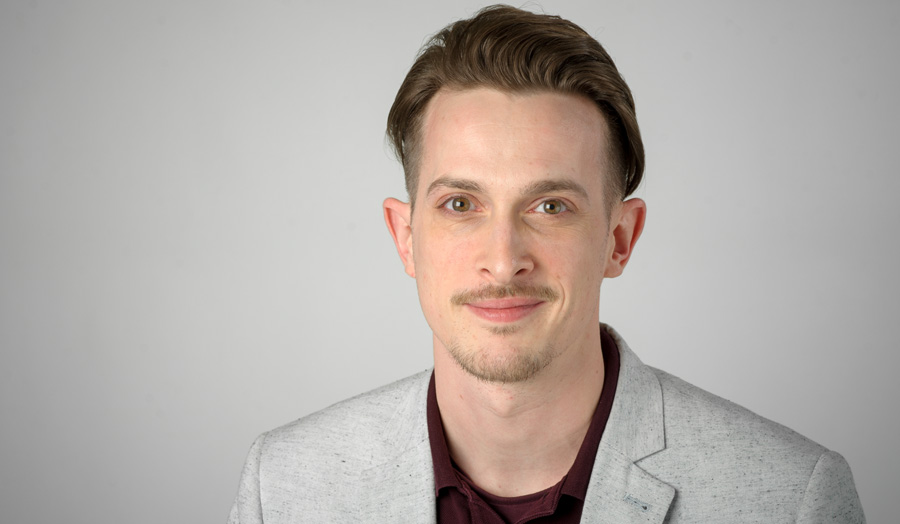Dale Rees, a Dietetics and Human Nutrition lecturer, speaks with Marina English as part of our In Conversation With series.
Marina from our Outreach department caught up with Dale Rees to find out more about our Dietetics and Nutrition BSc course and what makes it so unique!
Can you explain the difference between dietetics and human nutrition?
This place where students end up working is the major difference. If you do dietetics, you're more likely to work in healthcare and healthcare systems, hospitals, GPs, nursing homes, that type of situation. Whereas a nutritionist is more likely to work in public health. So I get people to think about dietetics as the cure and human nutrition as the prevention. The nutritionists are there to gather the evidence, the science behind it all. Dietitians do that as well, but dietitians work more on a clinical focus. I would say that's the main difference.
Are there any particular challenges for students during the course?
Two things, I would say. The first is they don't realise the breadth of the subject material. You have to know, for example, lots about biochemistry and metabolism. So some of the subject matter comes as a surprise to some students.
The second challenge for students is how the course progresses from year to year. It gets considerably harder as the years go on, as the levels get higher. And I think students don't necessarily realise that in the first year and they might get complacent because they do really well in the first year and then they get to the second year and they're not getting the same grades. We really try to get them to think about how the course progresses as they go further through it and how it changes and how they need to adapt to that.
Are there any parts of the course that students engage with particularly well?
Students love any of the modules that are heavily dietetics-related. There are a few core dietetic modules called clinical dietetics, and they start learning lots about the diet therapy for conditions such as obesity, heart disease, cancer, all of those kinds of things. It's the nitty gritty stuff they really want to learn.
I think the best engagement is when they go on placement because they get to finally put all that theory into practice and they start getting those eureka moments of stuff making sense. They start to really feel like what it is to be a dietitian. They're working within trusts, they're working with other healthcare professionals, and they love that. They're really getting their hands-on experience.
What are the career prospects or further study possibilities for this course?
Really exciting. I think the job prospects within dietetics are really strong at the moment. There are a lot of dietitian jobs out there with the NHS, so that's good news for our graduates. We do find that there seems to be a London effect: students who go for jobs outside of London each year seem to get picked up quite quickly, maybe looked upon a bit more favourably because they studied in London and so maybe studied in a very large, internationally recognised hospital. Bringing that experience with them really helps in job applications.
If somebody has applied for dietetics, is there a particular resource that you could recommend for them to be looking at before they start?
If you can get access to the University module catalogue, have a look at the modules that you're going to do, have a look at the reading lists and have an idea of what the learning outcomes are that will really help you to get started.
When students come to London, I think the first few months are a big adjustment to living in London. So I think if you are moving to London or you're moving out to your family home, getting yourself absolutely prepared in those first couple of weeks is important. Knowing where the University is, how to get to classes, how to adjust, all of those things that you need to do to get ready for university. Students are told so much information in those first couple of weeks that it can be very confusing, so it would really help to get yourself set up for studies first.

